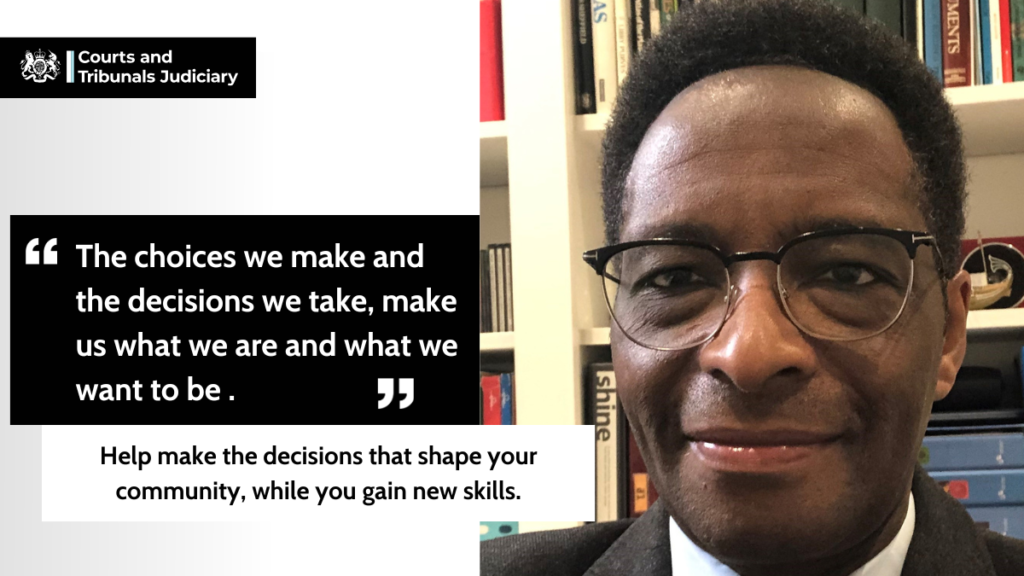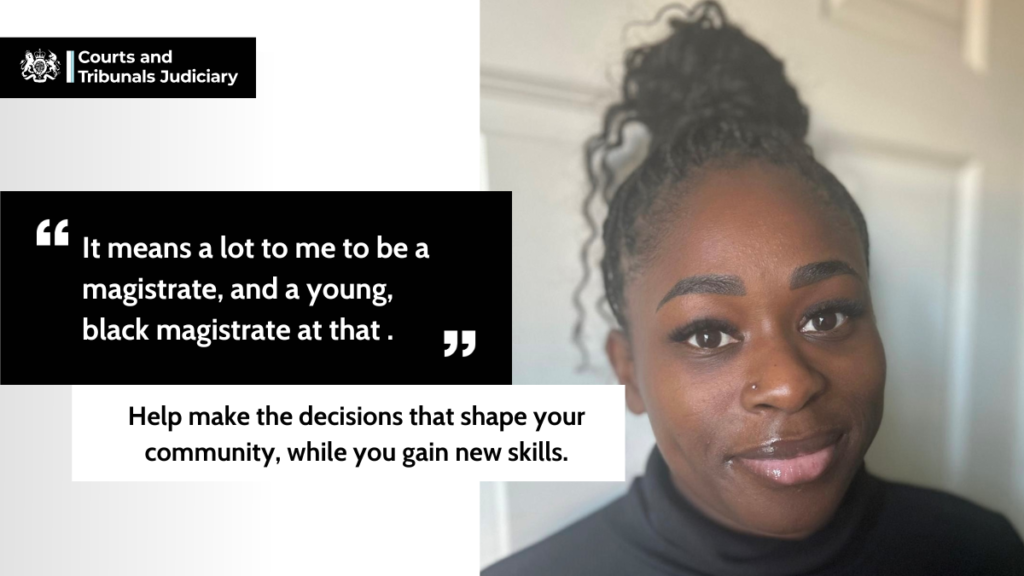Black History Month: Embracing diversity in the magistracy
October marks Black History Month. It is a month of learning and celebration, honouring the contributions and achievements of black people throughout history and today. This year’s theme is ‘reclaiming narratives’, with an emphasis on shaping how black people’s stories are told. Magistrates, O’Neill and Yvonne, share their views on the importance of diversity in the judiciary and what inspired them to become magistrates.
O’Neill

For me, Black History Month is an opportunity to further reinforce and celebrate the great achievements made by black people from diverse ethnic and cultural backgrounds.
It is a real honour to be able to represent my community. As a black magistrate, this means that I am acting on behalf of a group of people, who share common values about right and wrong with the wider community and bring a broader perspective to the magistrates’ bench.
I want to be a role model in demonstrating integrity, high moral values and a sense of justice when making decisions that will affect the present and future lives of a wide range of people. When you become a magistrate, I believe you are helping to improve the life experiences of the community you live or work in.
My personal role models were my mother and my Latin teacher. They both made a significant difference to my life by instilling the respect, educational and moral values that influence my behaviour and decision-making.
Being a magistrate is one of the most rewarding and satisfying roles to fulfil. It’s great to think that you will be making decisions that help to protect victims of crime, and help offenders stop being involved in criminal activity and be rehabilitated.
If you want to develop critical thinking skills, active listening skills, communication skills, the ability to follow a structured process to decision-making and the ability to articulate your thoughts convincingly, become a magistrate!
Yvonne

To me, Black History Month is a chance to have a spotlight on contributions that black people have made to society. Historically, some of these contributions have either been missed or overlooked. So, this is a month where we all can learn and understand the amazing skills, experience, and passion that black people have and bring to the table. While I endeavour to do so always, this month feels like one that I can authentically show up as myself in all areas of my life.
I have always had an interest in the law. I studied law at degree level (although you do not need any qualifications, legal knowledge, or experience to become a magistrate). One of my lecturers was also a magistrate and they would always encourage the class to get involved in the magistracy. It took me some ten plus years to eventually go for it, and I am really glad I did! It means a lot to me to be a magistrate, and a young, black magistrate at that.
My managers at work always show an interest in my role as a magistrate and I get 18 days’ paid time off a year to do my public duties. Employers are legally obliged to allow you time off to volunteer and most will give paid leave for at least some of a magistrate’s sitting days. You are also able to claim for certain expenses which arise from your duties, including travel, subsistence and an allowance for financial loss if you must take unpaid leave. I like to spend time speaking to colleagues about my magistrate role and, to date, have had two colleagues sign up and a few others who are waiting for vacancies to open in their area so they can apply. We need a variety of perspectives and challenge of thought; we need you!
Become a magistrate
If becoming a magistrate is something that you are interested in, check for availability in your area or register your interest.
